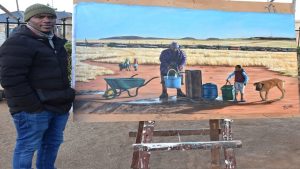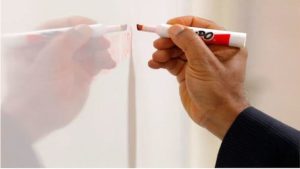Journalists must go back to basics and focus on their unique value adds as they work to signal that no other communication service can fill the gap.
This was the message from the Director of Freedom of Expression and Media Development at the UN’s Education, Scientific and Cultural Organisation (Unesco).
Professor Guy Berger also weighed in on the posture required of journalists in an era of disinformation and growing mistrust.
Berger is the former head of Rhodes University’s School of Journalism in Grahamstown and talks about the character of real journalism that should set itself apart from the easily accessible content available today.
He says, “We have seen journalism casting around for a way to compete by in a sense trying to emulate a lot of the digital behaviour you see such a click-bating and being first with the news without checking it and so on and patently that reduces the difference between journalism and the value-add of journalism as verifiable information in the public interest.”
“In a sense it’s back to basics but on many platforms, it’s back to basics that journalists really need to focus on their unique value add which is that they’re not just producing information for the sake of information, they produce in the public interest and they’re not just there to circulate gossip and rumour,” he added.
Professor Berger is in New York to promote a new Unesco handbook that provides guidance on how the media covers terrorism and violent extremism and will also participate in a panel discussion titled “Safe Journalists, Strong Democracies” as part of the Commission on the Status of Women.
“In the age if disinformation, journalists need more and more to be recognized as the trusted sources, even if different journalists come from media houses with different narratives still, journalism is not in the business of inventing news, journalism is in the business of uncovering and explaining and telling the news and I think that is an important distinction.
“So in order for journalists to be able to do this of course it requires high adherence to professional standards, but also requires that they are free, that there’s a pluralism of media, that journalists are independent and can be guided by self-regulatory standards and they should be safe from harassment and even worse the kinds of attacks we do see on journalists, physical attacks,” said Berger.
Asked about the consequences of US President Donald Trump’s war with the press, Berger said: “One wants to not put the press above criticism but one doesn’t want the press to be subject to strong rhetoric which could fuel antagonism against journalists in general and so I think it’s important in countries where you do have press freedom that there is a vibrant debate about that but it should try to be in civil terms and its important I think that at the end, the public don’t lose faith in real journalism.”
Berger further warned that society’s growing appetite for disinformation could undermine a country’s progress towards sustainable development, respect for human rights and social progress moving forward.






